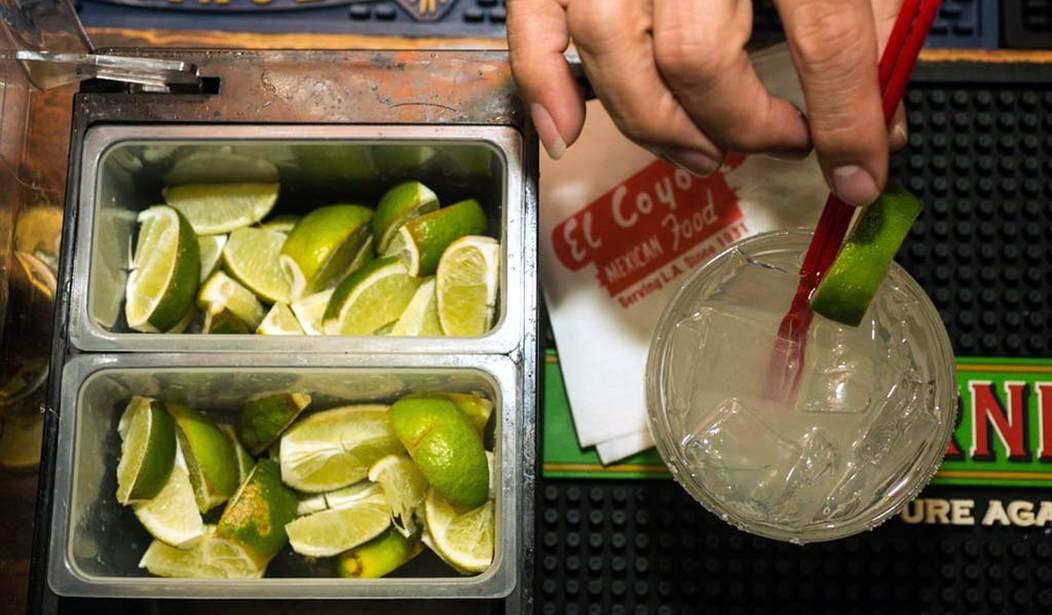Most people, including me until recently, throw their lime or lemon peels away.
It seems that might be a mistake for anyone who cares about optimizing their cognition.
This is because the clinical literature indicates that “citrus fruit [peels], which are generally discarded as waste in the environment, can act as potential nutraceutical resources.”
Furthermore, the peels are potentially more nutritious than the actual lime/lemon juice; research published in Antioxidants concludes “the citrus fruit peel flavedo (outer layer) and the albedo contain more flavonoids than the juice sacs.”
Let’s have a look-see at this study published in the medical journal Nutrients (emphasis added):
Citrus [polymethoxylated flavones], such as nobiletin and tangeretin, exerted beneficial effects on cognitive function in numerous experimental models—e.g., AD, Parkinson’s disease, and cardiovascular dementia by modulating pathological features such as Aβ/tau pathology, oxidative stress, and neuroinflammation and improving synaptic plasticity in several experimental models. Besides, flavanones such as hesperidin, naringin, and narirutin exerted neuroprotection in several neurodegenerative disorder models…
A recent study documented the synergistic effects of citrus peel powder and perilla seed oil (PO) on cognition. PO is rich in α-linolenic acid (ALA) and improves cognitive function and mental health in healthy and older adults…
Preclinical studies indicated that flavanones, such as hesperidin and narirutin, improve cognitive impairments induced by oxidative stress, inflammation, and ischemia. These flavanones have also been reported to improve cognitive function through various mechanisms, including increasing BDNF levels and improving neurological function…
A prospective cohort study including 82,643 women without a diagnosis of depression from the NHS (53–80 years old) and the NHSII (36–55 years old) showed an inverse correlation between the development of depression and citrus consumption. Moreover, maximum flavanone consumption (>64.2 mg/day) markedly reduced the risk of depression (by 10%). Thus, high flavonoid intake may reduce the risk of depression…
This review explored the effects of citrus components on brain health and related functions. Numerous clinical and epidemiological studies have demonstrated the benefits of acute and chronic consumption of citrus components on cognitive functions for healthy or preclinical individuals and patients. Another great advantage of citrus flavonoids is their safety. Indeed, high-dose and chronic intake of citrus peels and extracts have no serious adverse effects on humans or animals.
Here we might take a moment to appreciate the last paragraph above, specifically the “no serious adverse effects on humans or animals” clause. As far as I am aware, there has never once in the thousands of years of human consumption of citrus been a reported myocarditis event following ingestion.
Perhaps it lends new meaning to “safe and effective.”
Related: Leaked Email: CDC Drafted Myocarditis Warning in May 2021, Never Published
Then again, limes aren’t tools for generating social control and pharmaceutical windfalls, so I doubt we’ll see the Public Health™ authorities peddling them anytime soon.
Lime/lemon peels, rich in a terpene called limonene, are also extremely beneficial for a range of metrics associated with cardiovascular health, closely correlated to long-term cognitive health (search engine “vascular dementia” for confirmation).
Via The European Journal of Pharmacology (emphasis added):
In the preventive treatment, d-limonene decreased the size of white and brown adipocytes, lowered serum triglyceride (TG) and fasting blood glucose levels, and prevented liver lipid accumulations in high-fat diet-fed C57BL/6 mice. In the therapeutic treatment, d-limonene reduced serum TG, low-density lipoprotein cholesterol (LDL-c) and fasting blood glucose levels and glucose tolerance, and increased serum high-density lipoprotein cholesterol (HDL-c) in obese mice.
Some food for thought the next time you’re about to toss the peels in the garbage disposal.










